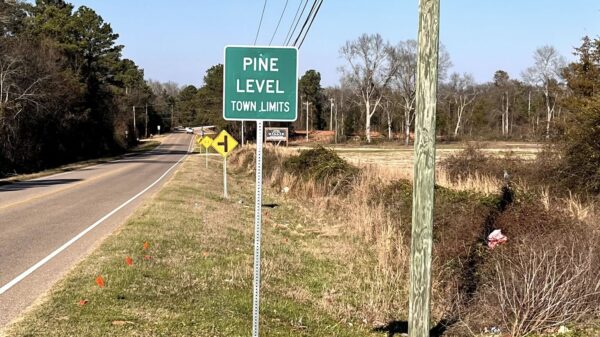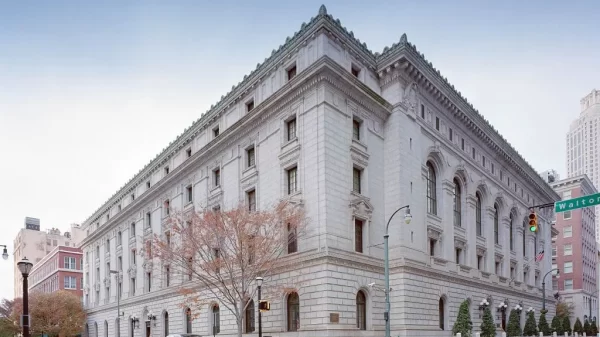There will be a gambling debate when the Alabama Legislature reconvenes this afternoon. Competing bills – one set that would establish a lottery and another set that would allow for state licensed casinos, sports wagering and a lottery – will pit Republican lawmakers against one another, with Democrats holding key swing votes, in an odd and rare setup for this GOP-dominated state.
Stranger still: the majority of the lawmakers involved in this debate would prefer that it wasn’t happening. At least, not right now.
Lawmakers had hoped to push the gambling fight – and it’s always a fight – to a special session held after the party primaries in May, when several would feel less pressure. According to several sources, the governor’s office, which has mostly stayed out of this session’s debate, was open to calling a special session at a later date.
Things seemed to be heading in that direction, until Rep. Chip Brown introduced his lottery-only bills. That turned up the heat again, and here we are.
To be clear, Brown’s bills are nonsense. They are poorly written, with little detail and even less legal structuring, particularly for legislation that seeks to implement gambling in every county in the state. They are essentially copy-and-paste mashups of previous legislation created with the primary purpose of derailing the comprehensive gambling package introduced by Sen. Greg Albritton earlier this session.
Albritton’s bills, which would establish a gaming commission and implement new laws and oversight throughout the state, would allow for five state-licensed casinos, sports wagering and a statewide lottery. Brown’s bills would create the lottery and a commission to oversee it.
And that gets us to yet another argument against Albritton’s comprehensive gaming bill:
“I just want a lottery and to forget all that other gambling.”
I mean what I’m about to say in the nicest possible way: That’s very ignorant.
Now, stay with me, because I don’t mean “ignorant” in the schoolyard, you’re-a-buffoon way. I mean “ignorant” in the clinical, you-don’t-understand-the-details way.
Right now, there are about 15 casinos operating around Alabama. (And, yes, I’m using the term “casino” very loosely here.) They’re all offering electronic bingo games, or some other electronic gaming. Many of these establishments are in strip malls or a shady out building off the beaten path.
Most of them exist in a county which has passed a constitutional amendment allowing for bingo, and did so after the early 1990s, when electronic bingo became the game of choice. These counties, such as Macon, Greene, Lowndes and a few others, believe their citizens legalized this form of gaming. In many instances, multiple courts have ruled in their favor, even if the Alabama Supreme Court ultimately did not.
Regardless, these counties protect their right to have these games, because these games produce a steady, important revenue stream in counties where such revenues are rare. The county sheriffs protect those games. And state lawmakers have consistently shied away in recent years from the ugly optics of devoting resources to shutting down businesses that the locals want and the local law enforcement has vowed to protect.
These facilities pay very little in taxes. There is almost zero oversight of their operations. There is no one protecting the rights of customers. There is no one ensuring the books are properly kept.
If Brown’s bills somehow become law, all of that remains in place. And you will expand gambling by way of the lottery into every county.
That’s just not smart.
Albritton’s bill, on the other hand, eliminates the unmonitored gaming – both by giving law enforcement new tools to root it out and punish illegal operators and by establishing the one thing that’s certain to kill off these strip mall bingo halls. Professionally operated casinos.
That’s why I’ve said before that Albritton’s bill is in reality a reduction in casino gambling around Alabama. While it allows for five state-licensed casinos and two state-licensed electronic gaming halls, it will shut down nearly twice that many small-time outfits.
The other thing about Albritton’s bill is that it places the casinos in counties which currently have bingo amendments and dog tracks. In other words, except for the one casino in the northeast (which would have to be approved by a vote of local officials), the casino locations will be in counties that currently have gambling and rely on the revenue from gambling.
And all of those facilities would be paying a 20-percent tax rate and millions in licensing fees. In exchange for 15 or so currently operating casinos generating about a million dollars or so in annual revenue for the state, we would have five casinos generating around $400 million annually and producing 12,000 jobs.
So, yeah, you can pick the “lottery only” bill. But don’t be fooled into believing that it means less gambling.




















































